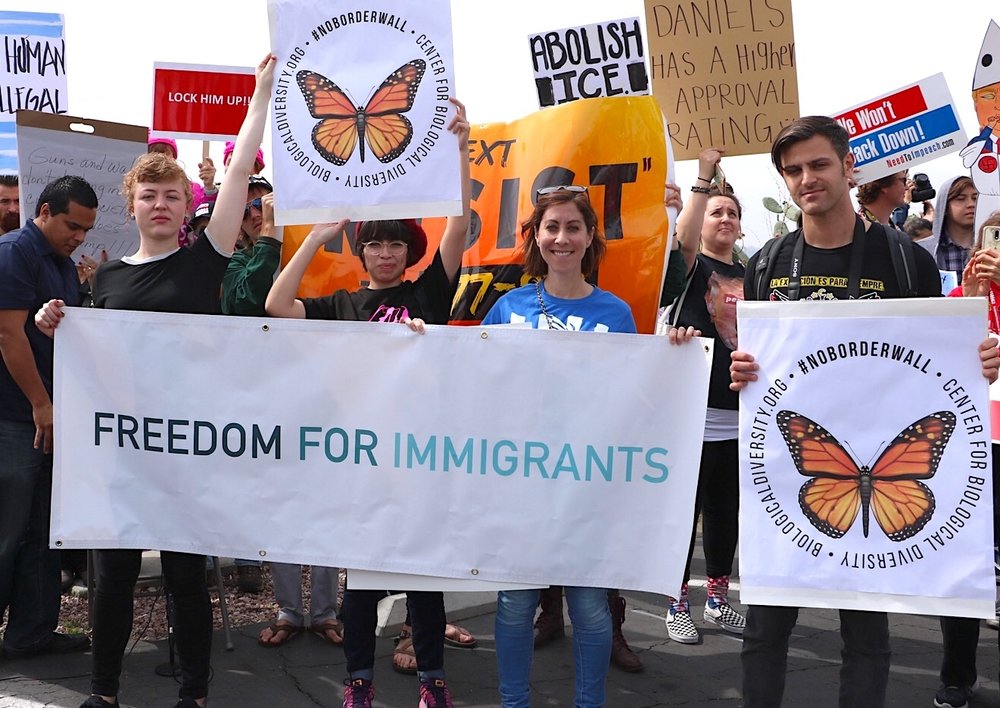- About
- Topics
- Picks
- Audio
- Story
- In-Depth
- Opinion
- News
- Donate
-
Signup for our newsletterOur Editors' Best Picks.Send
Read, Debate: Engage.
| November 08, 2018 | |
|---|---|
| topic: | Natural disaster |
| tags: | #California, #wildfires, #environment |
| located: | USA |
| by: | Shira Jeczmien |
The intensity and frequency of the fires over the past few months have pushed firefighters to their limits and with that, has put the state budget under strain. As a result, it has now been reported that the state is outsourcing firefighters through special departments in low-security state penitentiary centres to tackle the wildfires and more importantly, to do so right alongside California firefighters. The only catch here is that while a firefighter makes an average of $134,000 a year, their incarcerated comrades are on one dollar (or less) an hour. What incentive might an incarcerated person have to risk their lives in this physically taxing and at times extremely dangerous role you might ask. Well, the scheme makes sure that for every day served as a firefighter, inmates reduce two days off of their sentence.
In an interview with Democracy Now’s Amy Goodman, Sargent Steven Reeder said that “The inmate firefighters are the backbone of Cal Fire. They get the toughest assignment there is out there” and they currently make up a whopping 25 percent of all firefighters in the state. The work taken up by inmates to tackle wildfires has been estimated to save California up to $100 million per year, according to official estimates. In September’s Global Climate Action Summit in San Francisco, Governor Brown publicly praised the inmates, saying “I want to personally thank … the thousands of inmates who are also on the line fighting to protect lives and bring these fires to a quick close.” While the hard labour undertaken by these inmates to both protect the state as well as save it millions of dollars is indeed publicly recognised, that is unfortunately just about it. Once released, inmates who have gone through extensive fire camps and worked on the job are incapable of ever transferring their valuable skill to the free world industry.
Another immediate moral issue that comes to mind with this scheme is the role free-will plays in life-threatening labour that ultimately grants inmates days off their sentence. When freedom – or its absence – is your only current, can this type of decision making be seen as a “voluntary” as the prisons call the programme, or is it merely forced labour disguised as such? Amika Morta, a former inmate in a California penitentiary who joined the firefighting team back in 2013 for 52 cents an hour says that “folks who are there with the incentive of earning good time credit are trying to make it back home to their families and there is no other option to earn as much good time credit.”
With a felony tainting their record indefinitely, former inmates are barred from ever serving within a governmental body – despite the desperate need for firefighters; despite this valuable bridge to help formerly incarcerated people integrate back into society with a dignified job that can help them support their families and become an equal citizen once again. For many incarcerated people, integration back into society and into the workforce is a difficult challenge to overcome; large percentages of those serving time come from poverty. On top of the inflated prices of commissaries such as sanitary towels, personal hygiene products, phone calls to relatives, sending money back home and the massive fines and fees that they leave with once released, inmates have enormous financial burdens that they take with them throughout their sentence and after it. And in this light, their newly learnt skill – one that is desperately needed in California and across the U.S. – is barring former inmates from doing precisely what they have served their sentences for: rehabilitation.
Morta is now the prison re-entry director at the Young Women’s Freedom Centre and has been working on a number of bills that would set to change the regulations around occupational licensing, the EMS certificate, and a bill that addresses how far back a persons felony history can be looked at by employers and the state. She was also appointed by California Gov. Brown to the state advisory committee on juvenile justice and delinquency prevention, where Morta is now building a movement around shifting policies that negatively affect formerly incarcerated women and girls.
What the movement Morta is advocating and pushing forward comes to show is that there is space and a deep need for reform around the rehabilitation of formerly incarcerated people. Programmes such as the firefighters camp, if reformed in a way that is ethical and fair could see inmates help themselves earn more money home while gearing themselves up for a dignified future post-prison while helping the country battle the raging wildfires that are only set to increase.
Sources:
https://www.democracynow.org/2018/9/13/prisoners_fighting_fires_are_being_denied
https://www.democracynow.org/2018/8/9/1_an_hour_to_fight_largest
https://www.democracynow.org/2018/9/12/amika_mota_fought_fires_as_a
https://www.democracynow.org/2018/9/12/a_new_form_of_slavery_meet
By copying the embed code below, you agree to adhere to our republishing guidelines.
